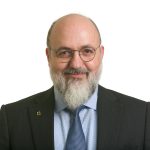This year’s Global Issues Showcase on Wednesday 19th April at the 56th IATEFL Conference & Exhibition included the following talks:
Language, power and education: five principles for critical pedagogy training
Rose Aylett (UK) | Presentation (PDF)
If education is inextricably linked to social and moral responsibility (Kemmis & Smith, 2008), then teacher education should raise awareness of how social inequalities are perpetuated through the dominant power structures inherent within existing teacher-student relations, curricula content, teaching materials, and language itself. This talk explored five guiding principles to consider when designing critical pedagogy training for English teachers.
Linguistic and content scaffolding in the teaching of global issues
Catherine Watson (Denmark) | Presentation (PDF)
Integrating global topics, such as issues from the UN Global Goals, is often a motivating factor in foreign language classes in upper primary and lower secondary school. However, it can present both linguistic and cognitive challenges. This talk shared ideas and examples of scaffolding to provide optimal opportunities for both language learning and increased awareness of important societal issues.
Teaching English as a global language: changing mindsets through culture
Anna Hearrell (USA) and Venice Irving (Jamaica) | Presentation (PDF)
The lack of linguistic diversity in learning materials greatly underserves our learners’ need for authentic language exposure, leaving them underprepared to use English as a lingua franca in the 21st century. We learned about world Englishes and how the inclusion of cultural awareness activities and diverse authentic language in the classroom can broaden students’ exposure to English as a global language.
“My war”: creating meaningful materials for times of conflict
Maggie Sokolik (USA) and Yaroslava Fedoriv (Ukraine) | Presentation (PDF)
In response to the ongoing war, a Ukrainian university allowed students to submit “My War” video stories instead of the usual academic reports. Samples of these videos and supporting materials demonstrate how alternative assignments and responsive curricula can fulfill program requirements while allowing students to engage critically with the events around them.
Teaching for a better world. Sustainable development goals in ELT
Eftychios Kantarakis and Ruby Polygenis (Greece) | Presentation (PDF)
Working with the UN Sustainable Development Goals brings real world content and issues into the classroom. How about ELT? In this practical workshop, teachers were working on activities that make language learning relevant and meaningful and consequently lead students to finding world-changing solutions starting with the future of the world in their classroom today.
A toolkit for using UN international days in university telecollaboration
Will Hutton (UK) and Daniela Garcia (Brazil) | Presentation (PDF)
The United Nations uses international days as levers to promote international awareness and action on specific themes. A series of collaborative virtual forums between university students in the UK and Brazil using UN international days to promote internationalization at home alongside English for Academic Purposes will be assessed. A toolkit for applying this approach in other contexts was presented.
Poetry and education for sustainable development in language classrooms
Jason Skeet (UK) | Presentation (PDF)
What counts as sustainable education and what (and who) is it for? This workshop addressed this question through a demonstration and exploration of procedures for generating poetry in a language classroom, alongside an examination of why language teachers might want to use both reading and writing poetry as a way to investigate the ecologies of their classrooms.










Comments are closed.